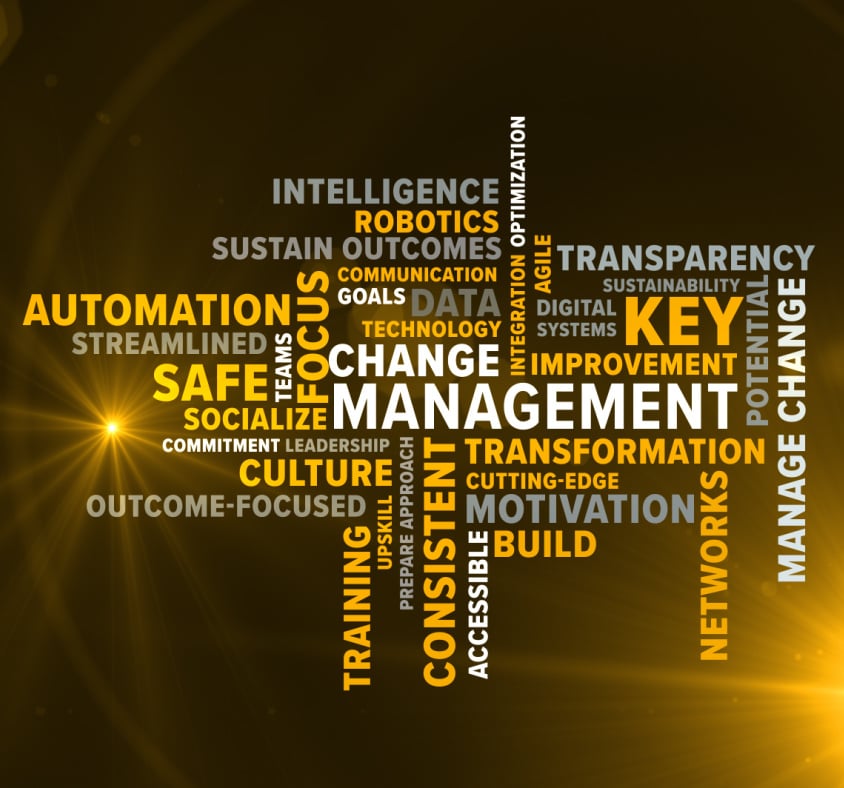By Jennifer Tangco
Unlocking the true potential of organizational transformation demands a refined approach to change management. The journey doesn't have to be a treacherous expedition; it can be navigated with precision and purpose.
While the allure of a streamlined and sustainable logistics operation is evident, the stakes remain high. Missteps in transformation can be costly and tarnish hard-earned reputations. This fear can stifle progress, causing leaders to postpone crucial investments until they have no choice, spiraling costs and complexities further.
The challenge lies in dealing with the unknown. Many companies grapple with the risks, unsure of where to begin, so having a partner with experience enhancing supply chains is critical. At Metro Supply Chain, that’s where we excel.
For years, we've guided clients in redesigning and making process improvements to their distribution centres, fine-tuning transport networks, integrating cutting-edge technologies to increase the speed and sustainability of their supply chains, and introducing digital systems to give leaders the data they need to make informed decisions. Yet, the essence of change management transcends technology; it's about fostering a culture that embraces new ideas and working in new ways— an essential piece of the puzzle that’s often overlooked.
Communication change
There are many significant benefits to change management. PwC found that change management programs that engage all employees can help to reinforce the reasons behind the transformation and ensure everyone on the team understands why they should be upskilled. These programs also help communicate and socialize the changes within the company and are often an effective way to motivate employees to adapt and learn.
A McKinsey report found that a successful change management program can help companies focus and prioritize their goals, increase commitment to change from all levels of an organization and retain more value than their peers.
However, many change management programs struggle because ideas come from the top and filter down to the people who do the work – it’s how 80% of organizations operate today, according to Gartner. That approach worked fine in the past with a vertical organization, but that’s not how agile businesses are built today.
Organizations now have more complex reporting lines and interdependencies between teams, meaning senior leaders don’t have as clear a view of the floor. On the other hand, the employees doing the work understand their jobs intimately and know, better than anyone, how to work faster and safer.
We see it at Metro Supply Chain, so when we need to implement a new system, we go to great lengths to solicit input from everyone across our organization.
How we deliver change-related messages is as crucial as the message itself, grounded in five fundamental principles:
- Outcome-focused: Inspire people to rally around a new initiative. To do that, we provide clear, concise messages that explain why we’re promoting change and what’s in it for our employees.
- Transparency: Be open and honest, offering as much information as possible to impacted stakeholders. Laying out realistic expectations will ensure everyone knows what success looks like.
- Consistent: Involve all groups early to develop a consistent plan and messaging. Making standard templates and branding assets available through multiple channels will ensure everyone is working toward a common goal.
- Streamlined: Communicate concisely and in a coordinated manner so every team member receives relevant information simultaneously.
- Accessible: Make sure communication is accessible to the appropriate team members, no matter where they live and work.
Three phases of change management
Who delivers change management messages is also critical. We engage our middle managers as our change advocates, which empowers them to support their direct reports. In this environment, we solicit feedback from the team, using the widely adopted Prosci ADKAR (awareness, desire, knowledge, ability and reinforcement) model to guide individuals through the change process.
Our change management approach can be distilled into three phases:
Prepare approach
This initial phase aims to position the chance for success by developing a customized, scaled change management strategy and the required sponsorship and commitment.
Manage change
Next, we enable impacted individuals and groups to adopt the new initiative or solutions. To achieve the right adoption and usage, we have developed a set of plans that will move individuals and the organization through their ADKAR model.
Sustain outcomes
Finally, we focus on reaching the desired outcomes from the project or initiative by ensuring adoption and equipping the organization to sustain the changes over time.
Be it integrating EV trucks for sustainable logistics or optimizing warehouse operations with cutting-edge equipment, we specialize in steering projects away from pitfalls and keeping your project on time and budget.
At Metro Supply Chain, we can help you design, build and run your operations. We can help train teams to improve efficiencies, find cost reductions and introduce automation, robotics and business intelligence to meet all your logistical needs. We can help your upstream operations through our Supply Chain Alliance arm, including managing operational turnarounds, designing networks, planning value chains and supporting leadership.
Change management is more than communications and training. You need everyone to buy in and commit to success. Our senior leaders widely support our organizational change management (OCM) approach and are gaining widespread acknowledgment within the organization.
We know change can be challenging, but we can help simplify the work and lower your risk.
Related Posts
Meet the soaring demand for vitamins and supplements with fast, compliant fulfillment
How to optimize your big and bulky last-mile delivery service
How the right change management program is key to transformation
Archived Posts
- september 2024
- january 2024
- february 2024
- march 2024
- may 2024
